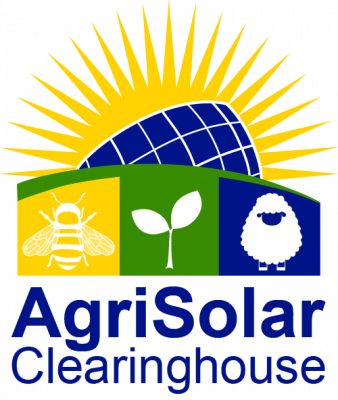AgriSolar Podcast Ep. 1: Growing Crops Among the Solar Panels in Colorado
The AgriSolar Clearinghouse Podcast officially kicks off with a conversation between Meg Caley, Executive Director and co-founder of the Colorado nonprofit Sprout City Farms and AgriSolar Clearinghouse Director Stacie Peterson. They discuss the many additive benefits of agrisolar, the challenges of farming in an obstacle course, and the importance of community.
